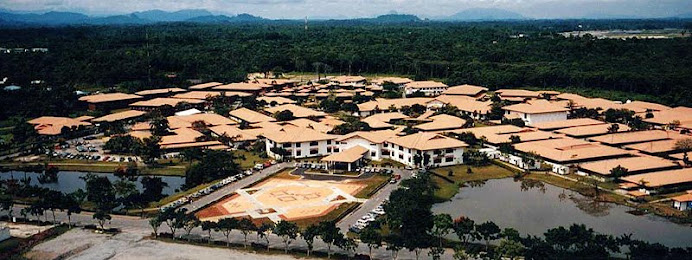Despite its occurrence at a crucial time for the country, the leadership transition has stirred very little excitement or optimism among Malaysians. In fact, it's safe to say they cared more about President Obama's swearing in than Najib's.
Two main reasons explain the lack of excitement.
First, Najib in no way represents change. The fifty-five year old was initially elected to Parliament at age twenty-three. He was a state governor by age twenty-nine. Prior to becoming Prime Minister he was the Deputy Prime Minister for five years. Najib is Malaysia's sixth PM, and his father and uncle were the nation's second and third, which helps explain his early political successes. His face and name are definitely not new.
He has worked his way up to the presidency of the same Malay-centric political party that has dominated Malaysian politics since independence fifty-one years ago. The number of scandals and unanswered allegations surrounding Najib prompted a respected former MP and law minister to give a speech titled "If truth be told, he can't be PM" in which he appealed to the king, who technically appoints the prime minister, to choose someone else from the ruling party. Race-based political parties and scandal-ridden politicians are also nothing new.
The second reason that this transfer of power has failed to inspire Malaysians is that they played virtually no part in the choice of their new leader. In Malaysia's parliamentary system, as in any other, the Member of Parliament who leads the party which commands a majority of seats in the lower house is the Prime Minister. This post carries more power in Malaysia's system than does the presidency in America's.
Whereas President Obama was directly elected by American citizens, Malaysians had very little say. As the former Vice President of the country's dominant party, he ran unopposed for the presidency and was officially voted in by elites at the party's Annual General Assembly last week. (The announcement that Najib would be chosen as successor was made months ago.) The only Malaysians who can vote directly to keep him in government or remove him are those 120,000 who reside in the parliamentary constituency he represents. For comparison, of course, every American had the choice to vote for or against Barack Obama.
I am still the only person I know who actually watched last Friday's live broadcast of the swearing-in ceremony. It was over in a half hour and contained no speech but rather two prayers, two renditions of the national anthem, the bestowal of an award to the outgoing PM, the reciting of an oath and signing of agreements by the incoming PM, and much bowing to the king and queen with hands pressed together in front of the face.
Malaysians have seen all this before. Now they're waiting to see what Najib will do.


